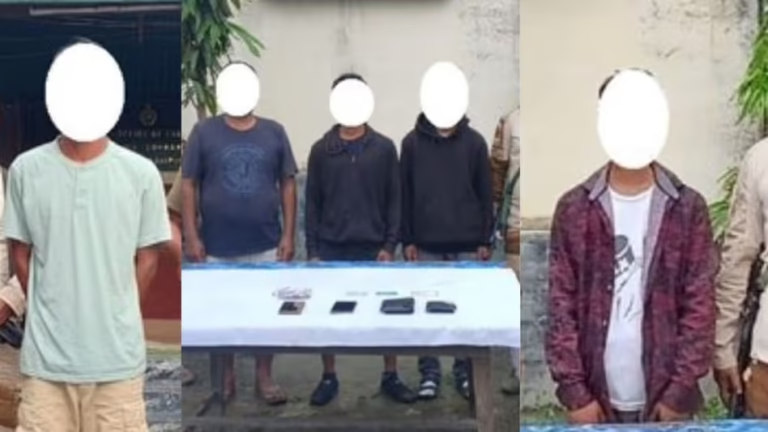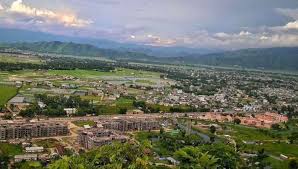Thousands of women organised a massive rally in Imphal East district demanding the repeal of Armed Forces Special Powers Act 1958 (AFSPA 1958) from the state.
Summary of the Article
In the ongoing conflict in Manipur, women in Imphal have actively mobilized against perceived inefficiencies and biases in the handling of security issues. Defying curfews, groups like the Meira Paibis have organized rallies to protest the central government’s actions—or lack thereof. These protests specifically target the Assam Rifles and demand stronger measures to restore peace in the region. The rallies, marked by torches and slogans, reflect public frustration over prolonged violence, inadequate security, and the state’s alleged bias in the ethnic conflict.
Full Article
What’s Happening in Manipur?
Manipur, a state in Northeast India, continues to grapple with ethnic and political turmoil that has left communities divided and disillusioned. The recent rallies in Imphal, organized predominantly by women, underscore the growing unrest. Protesters, primarily from the Meitei community, took to the streets despite strict curfews to voice their concerns over the state’s mishandling of the crisis.
Who Are the Protesters?
The women leading these movements are part of a well-known group called the Meira Paibis, or “torchbearers,” symbolizing the defenders of peace and community values. Historically, these women have played critical roles in socio-political movements in Manipur. Armed with torches and placards, they marched through major streets, calling for immediate action.
Key Demands
The protests revolve around:
- Removal of Assam Rifles: Protesters accuse the Assam Rifles of partiality, claiming they have failed to act against militant groups.
- Resignation of Security Officials: Protesters demand the resignation of key figures, such as the chairman of the Unified Command, for failing to protect vulnerable communities.
- Government Accountability: Protesters have called on the central and state governments to prioritize peacekeeping and engage in honest dialogues to address ethnic conflicts.
Clashes and Confrontations
During the demonstrations, protesters tried marching towards significant government offices, including the Chief Minister’s bungalow and Raj Bhawan. Security forces responded with tear gas, but the demonstrators persisted. After hours of standoff, representatives were allowed to meet security officials to voice their demands.
Why This Matters
This movement highlights the deep-seated grievances in Manipur, where ethnic divides between the Meitei and Kuki communities have led to recurring violence. The protest also reflects the larger narrative of distrust between local populations and central security forces. Women leading these protests signal a significant cultural and political shift, amplifying grassroots voices in the state’s crisis management.
What Lies Ahead?
As protests gain momentum, the focus remains on how the government will respond. Will they take tangible steps toward reconciliation, or will the unrest deepen? The stakes are high, with thousands displaced and communities fraying under the weight of distrust.
FAQs
- What is the Meira Paibi movement?
Meira Paibis are a group of women activists in Manipur known for their grassroots mobilization and advocacy for peace. - Why are the Assam Rifles being criticized?
Protesters allege that the Assam Rifles are biased and ineffective in preventing violence, favoring certain militant groups. - What triggered the protests?
Rising violence, ethnic tensions, and dissatisfaction with the central and state governments’ handling of security issues triggered the demonstrations. - How have women played a role in these protests?
Women have taken the lead, organizing marches and rallies, demanding accountability, and presenting a united front against perceived injustices. - What challenges does Manipur face in achieving peace?
The primary challenges include ethnic mistrust, ineffective security policies, and the need for inclusive dialogue that respects all communities.


